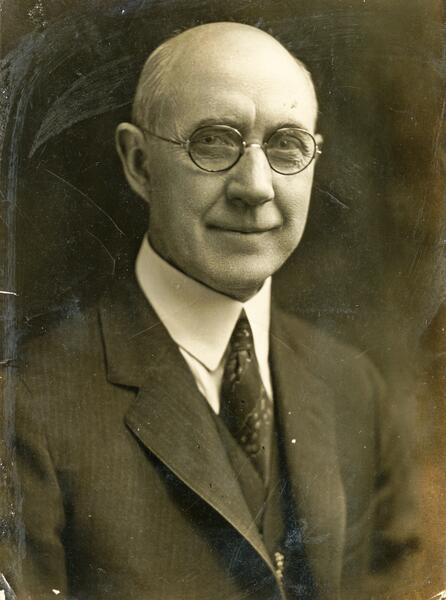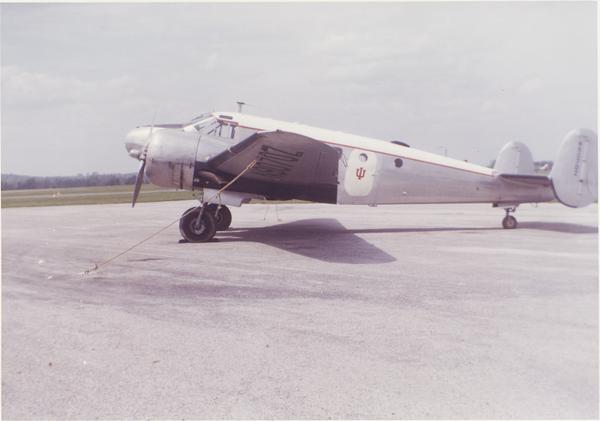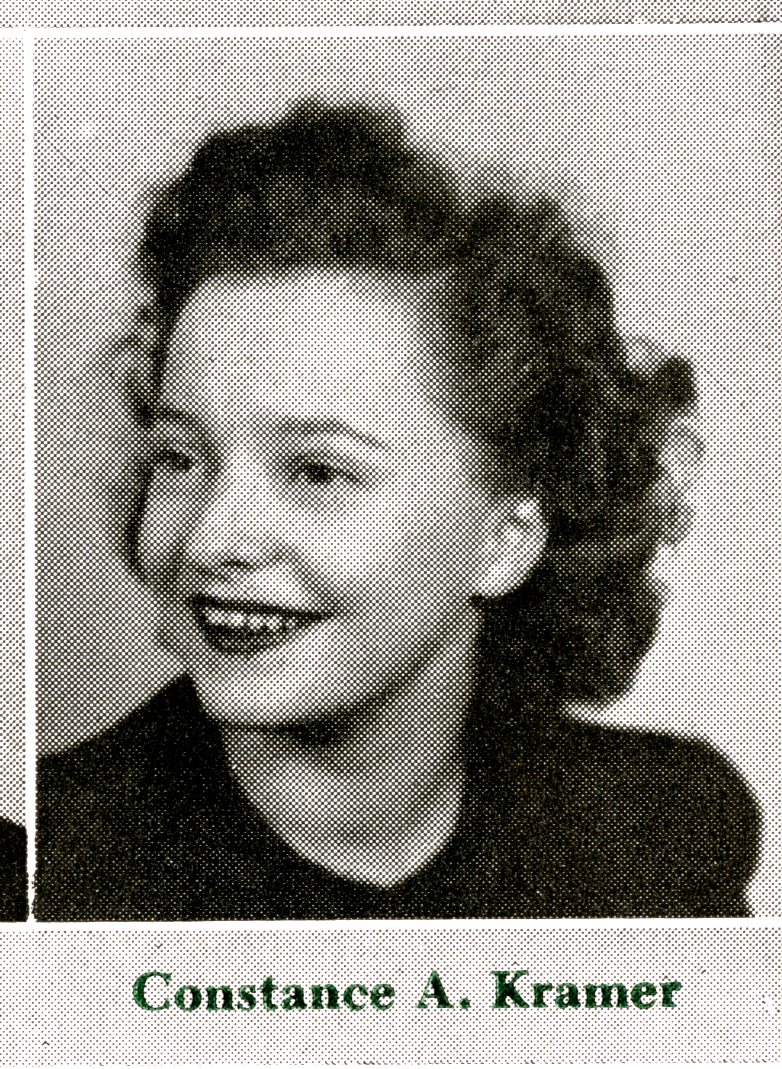This post was written by former IU Archives Archives Assistant Ben Parnin, who is now the Archivist for Digital Preservation at the Purdue University Archives and Special Collections.
Today the Kelley School of Business is a pillar of Indiana University. Making up 29 percent of the undergraduate enrollment, it is the second largest school on the Bloomington campus just behind the College of Arts and Sciences. The Kelley School of Business’s fame has drawn students from around the world. Despite this prestige, it did not always enjoy the same prominence as it does today and it went through several transformations before reaching the status it has now.
I discovered this new side of the School of Business when I processed the Indiana School of Business Oral History Collection. The collection is comprised of over a hundred video interviews documenting the foundation and history of the IU School of Business from the founding of the school through the 1980s. Interviewees in the project include faculty, alumni, and Bloomington business owners. The oral history project was started by business professor John Mee as a way to celebrate the School of Business’s 50th anniversary.

As I was sifting through the collection I noticed a couple of interesting themes and stories. One was how in the early 20th century business education was considered a vocational education. This view proved to be an obstacle in the establishment of a school of business at IU. To the largely liberal arts faculty at IU, vocational education did not have a place in higher education. It was only through the advocacy of the first business school dean, William Rawles, and the growth of the program that the criticism was curtailed.
After World War II, higher education was in a period of rapid expansion as veterans returned from the front and the post war economy boomed. This surge in students led Indiana University to create several regional campuses/learning centers across the state. These regional campuses were a great resource for individuals that were unable to leave their homes to study at the main Bloomington campus. There was just one problem. People were needed to staff these regional campuses and teach the classes. This was the problem bestowed to Assistant Business Dean, Edward J. Kuntz. With limited personnel and funding to work with, Kuntz was tasked with staffing all the teaching positions for the business courses taught on the regional campuses.
Thankfully, Kuntz did have plenty of graduate students as well as the Bloomington business faculty at his disposal to teach the courses. The problem was getting them to the regional campuses and then back to Bloomington so that they could continue teaching at the main campus. To address this issue Kuntz turned to the sky for his solution.

“We used the university airplane and we started out by dropping people off at Fort Wayne then at South Bend and then at Gary and then turning around and picking them up later in the evening. I was always sweating out whether that plane would go down because here I was asking young faculty members and doctoral students usually in those days to take a course for a semester and then I was putting him on a plane and was wondering what [their] wife was saying about me” – Kuntz
The continued growth of the regional campuses and policy changes in how the university airplane could be used made the airlift an unsustainable program. Eventually Kuntz secured more funding and hired permanent staff for the regional campus. With the personnel crisis on the regional campuses resolved, the airlift operation was terminated.
Another fascinating part of this collection I discovered were the interviews of IU business alumni. Each year at the Indiana University Business Conference, John Mee would gather School of Business Alumni and inquire about their time at IU and their careers.
Some of the alumni interviewed were high profile and sported job titles such as Board of Trustees, Chairman, CEO, President, Chief Executive Officer, and Board of Governors of the Federal Reserve System. One of these high profile alumni that caught my attention was Francois B. Delachaux. Delachaux earned his MBA from Indiana University in 1963. After graduating he got a job at Timkin company and quickly climbed the corporate ladder. After 10 years at Timkin, Delachaux took over his family’s railroad and chromium metal business.
Delachaux’s interview with John Mee occurred two years after he was appointed president of his family’s business. This was the reason why this interview stood out to me because the conversation was centered around Delachaux’s ambitions for the company and his concern of taking over a company which still contained several family members who were his seniors. Almost 50 years later, it was fascinating to see what parts of Delachaux’s plan came to fruition. Other alumni interviewed also offer a snapshot of their opinions regarding economics and business practices during the 1970s and 1980s.

Not all the alumni interviewed in the Oral History Project sported fancy titles or were operating multi-million dollar companies. Some of the business alumni interviewed were local Bloomington and Indiana residents. One of these interviews I found interesting was Constance A. Kramer. Kramer begins the interview by sharing the story of when she tried to find a business job in January 1948 after recently graduating from Indiana University.
“It took a very short time to find out how foolish I had been by thinking that a woman with a management degree stood an equal opportunity for employment with a man in those days. And when about the 15th personnel manager asked me how fast I could type and when I said I didn’t want to be a clerical person and he said then you have nothing to sell us. I decided that I best go and work for my husband in his office and that is what I subsequently did.” – Constance A. Kramer
Kramer then goes on to reflect about her time as a female business student at Indiana University. She also addressed the progress women had achieved in the workforce since she has graduated and the challenges they still faced. Kramer’s interview offers insight into how women were treated in the business world during the 1940s and 50s.
It is worth noting that the majority of the participants in the Business School Oral History Project were white men. Kramer’s interview is one of the few times a woman was interviewed for the project. Even though the Business School Oral History Project was designed to capture the entire history and legacy of the IU School of Business it is crucial to understand what voices are being represented and what voices have been excluded. Even when women were interviewed in the project you can still see how businesswomen have been marginalized based on the questions and topics that John Mee asked during the interview.
When you first look at the Indiana School of Business Oral History Collection you might immediately disregard it as being irrelevant if your research is not specifically about the School, but interwoven throughout the collection you can find interesting gems about society, business, and cultural history. If you are interested in learning more about this collection you can view the finding aid or watch the entire collection of interviews at Media Collections Online.
1 Comment
I had the privilege of visiting Francoise Delachaux in France 7 years ago. A proud alumnus!